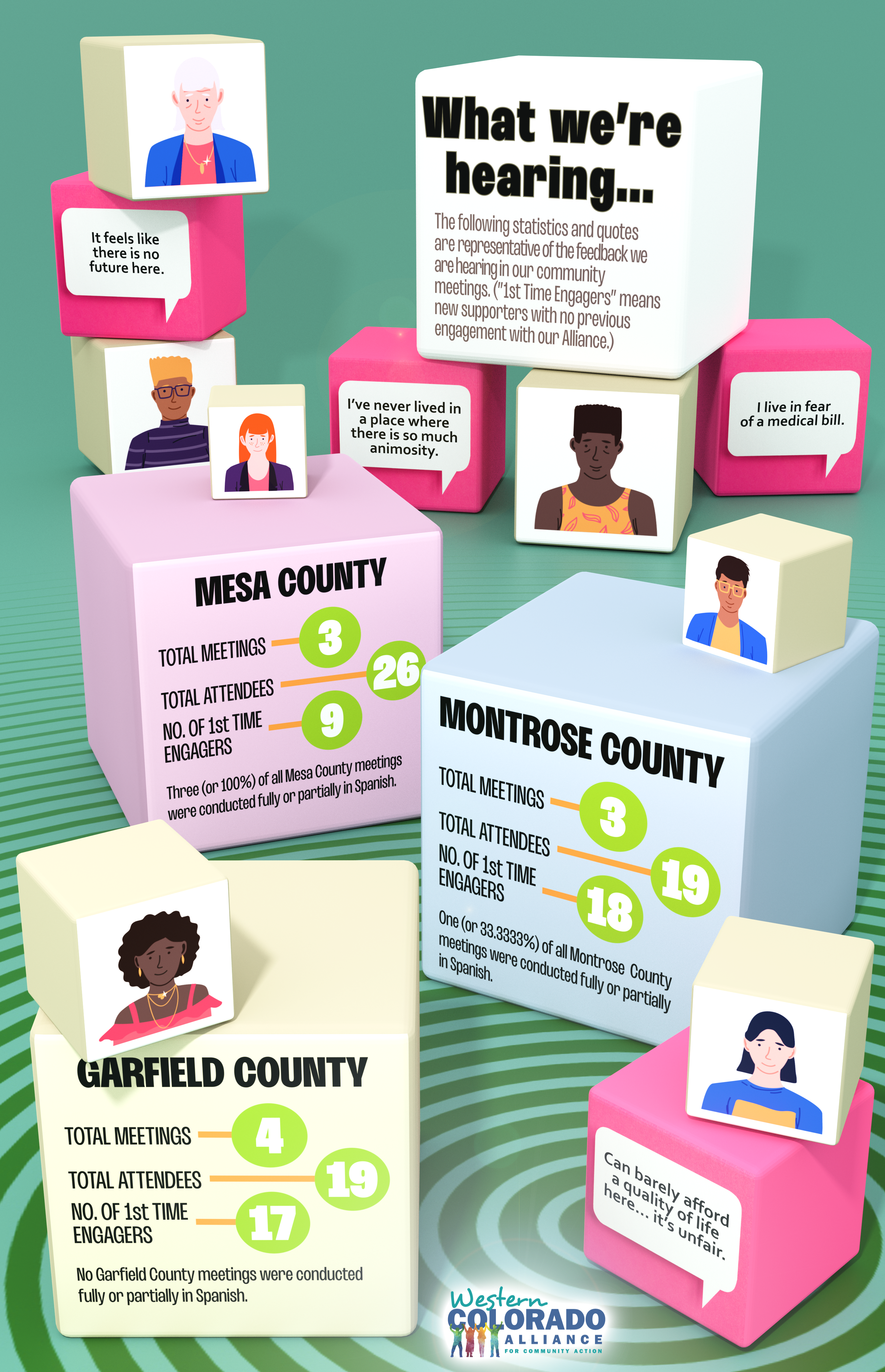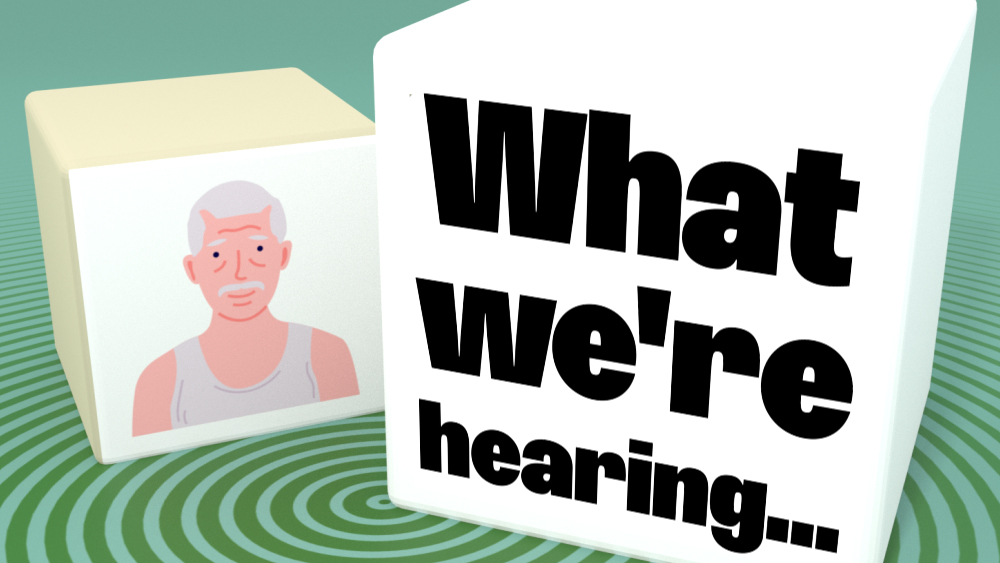- An Alliance For Community Action
- (970) 256-7650
- info@WesternColoradoAlliance.org
Our deep listening continues…
You may have heard that last year our Alliance’s community organizers led an innovative door-to-door deep listening campaign, but did you know this listening campaign is ongoing?
It has taken a different form. It’s slower, more still, and reaches a new level of vulnerability. Community organizers are now facilitating issue identification conversations to ensure we continue to truly understand our communities while building power. (You may hear them referred to as house or neighborhood meetings, they are the same thing!)
During these meetings, groups of five to eight people gather for an hour to share the personal impacts of local issues and explore the commonalities in their lived experiences through storytelling. From a grassroots organizing standpoint, the neighborhood meetings serve to identify issues and leaders that will inform future campaigns. But from a personal standpoint, they shine light on the emotional aspect of community organizing.
These issue-oriented conversations can’t exist without the expression of pain and frustration felt by those impacted by the issues. Participants have been willing to be honest and vulnerable, at times shedding tears. In truth, it’s very difficult to facilitate these emotional conversations. But through the acknowledgement of pain, comes understanding and empathy.
Whether the participants knew each other before walking into the room, we’ve watched community members find common ground in their lived experiences and realize that they are not alone. Participants are coming into these spaces from different backgrounds and places in life, but they are walking away with a renewed sense of community and hope.
In order to alleviate barriers that would prevent participation, our Alliance prioritizes accessibility. Organizers have provided a multitude of services and accommodations such as dinner, childcare, meetings conducted exclusively in Spanish, and offering interpretation when needed.
The meetings have been attended by a diverse array of participants, connecting community members across a broad range of cultures, ages, professions, and lived experiences. We will continue to commit to accessibility because we cannot create healthy, just, and self-reliant communities without everyone.
As for the issues surfacing in these meetings, each county is telling a slightly different story. In Mesa County, immigration and healthcare services for the Latino community are rising as top issues. In Montrose County, the issues raised are in line with what we heard at residents’ doors. Affordable housing, economic concerns, development and infrastructure, and community connectedness remain prominent concerns. Meanwhile in Garfield County, conversations have dominantly revolved around housing, healthcare, childcare, education, and transportation. The differences in top issues county-to-county illustrate the need to keep campaigns relevant by approaching issue work through a local lens.
Our organizers will continue to hold neighborhood meetings through the warm months even as we transition our focus from listening to taking action. Authentic community engagement is an ongoing mission of ours. If you are interested in joining one of these conversations, or hosting a neighborhood meeting with your own friends and family in attendance, please reach out to your local Western Colorado Alliance community organizer. We’re looking forward to hearing from you!



